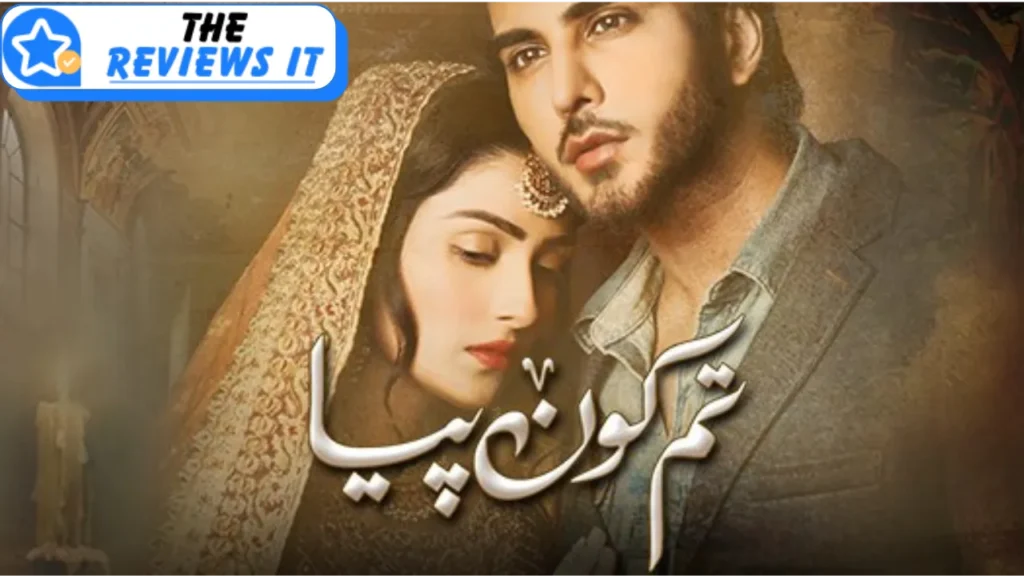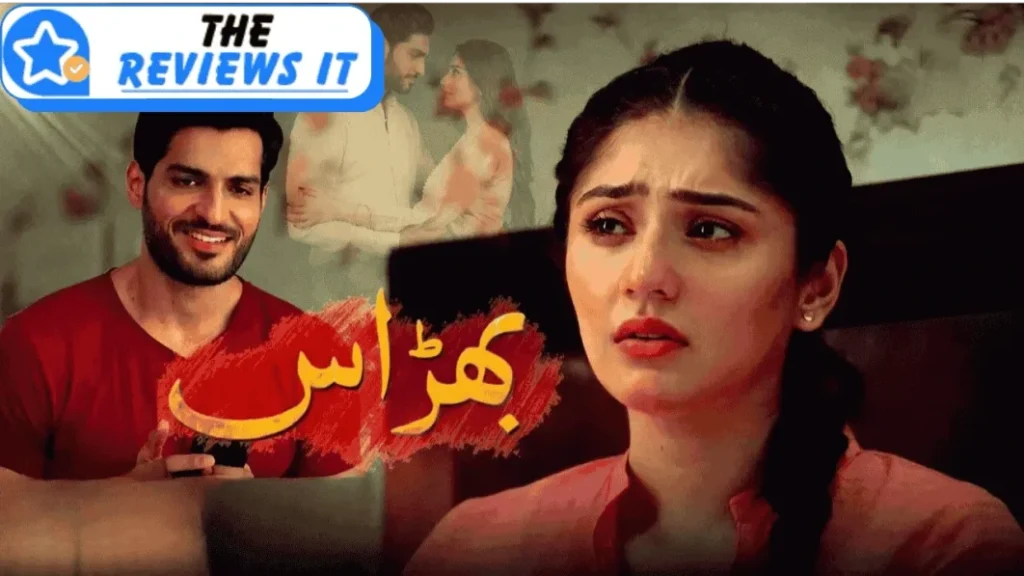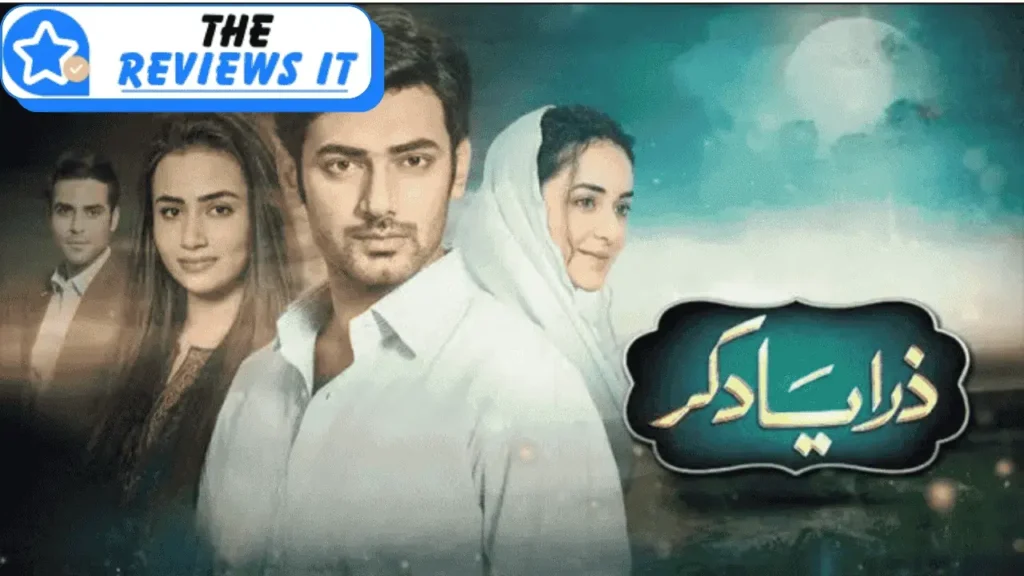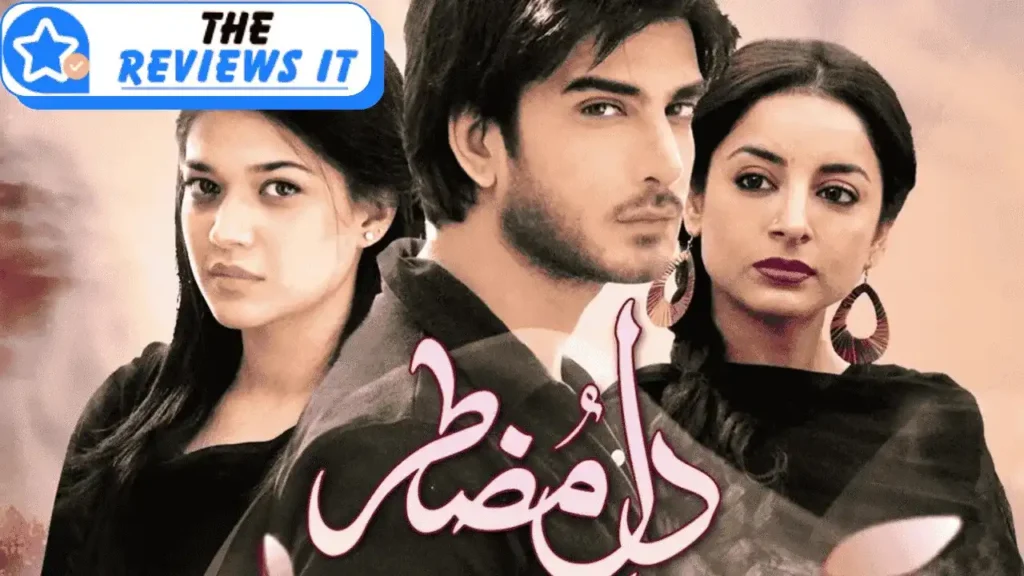Fitrat Drama Reviews: Fitrat, a gripping Pakistani drama that premiered in 2020, immerses its audience in a story rich with ambition and romance. The narrative centers on Fariya, a young woman with humble beginnings who dreams of opulence and elevated social status.
Intersecting Dreams and Desires
As the plot thickens, Fariya’s life becomes a battleground of conflicting aspirations. She falls for Veer, her charismatic classmate, but her ambitions drive her in another direction. A twist of fate brings her into the orbit of Anushka, Veer’s affluent brother, which propels Fariya into a maelstrom of crucial decisions. Caught between her genuine love for Veer and the tantalizing promise of wealth through Anushka, Fariya’s journey becomes a test of her true ambitions and the sacrifices she is prepared to make to fulfill them.
Fitrat is not just a mere love triangle; it offers a profound exploration of societal influences on personal choices. The drama examines class disparities, the quest for upward mobility, and the personal costs associated with pursuing an ostensibly “better” life.

Characters and Performances : Fitrat Drama Review
The characters in Fitrat are the heartbeat of this captivating drama, each one integral to Fariya’s story and the unfolding plot.
Fariya: A Woman of Contrasts
At the center of Fitrat is Fariya, portrayed by the talented Mahwash Ajaz. Fariya is a multifaceted character, torn between her ambitions and vulnerabilities. She longs for a life beyond her humble beginnings and is willing to take bold steps to achieve her dreams. Yet, her actions often tread a fine line between ambition and manipulation, leaving viewers questioning her true intentions. Mahwash Ajaz’s exceptional performance brings Fariya’s character to life, capturing her determination, internal conflicts, and moments of emotional exposure with subtlety and depth.
The Men Who Shape Fariya’s World
Veer, played by Ali Abbas, is Fariya’s initial love interest. He is kind-hearted and supportive, a classmate who genuinely cares for her. However, as Fariya’s aspirations lead her down a different path, Veer’s presence in her life begins to wane.
Anushka, played by Mariyam Nafees, stands in stark contrast. As a wealthy socialite, Anushka represents the life of luxury Fariya yearns for. The dynamic between Fariya and Anushka underscores the stark differences in their social standings and life goals, adding a rich layer of complexity to the story.
Supporting Characters: Enriching the Story
The supporting cast in Fitrat adds significant depth to the narrative. Fariya’s siblings, Rafiya and Haris, offer contrasting worldviews—Rafiya yearns for simple love and a traditional life, while Haris champions hard work and integrity. These differing perspectives heighten Fariya’s inner turmoil and illuminate her character’s multifaceted nature.
Veteran actors Saife Hassan and Sabiha Hashmi, who play Fariya’s parents, also deliver strong performances. Their roles provide critical insights into Fariya’s background and the motivations driving her choices.
In sum, the cast of Fitrat delivers compelling performances that bring the characters’ intricacies to the forefront. From Fariya’s inner battles and Veer’s steadfast affection to Anushka’s privileged outlook, each character is portrayed with authenticity, drawing the audience deeper into the drama’s intricate web.
Themes and Messages
Fitrat offers more than a typical love story, delving into themes that provoke deeper reflection among viewers.
Ambition’s Grip and the Cost of Desire
At its essence, Fitrat delves into the powerful drive of ambition. Fariya’s quest for a life of luxury propels the narrative, illustrating the lengths one might go to achieve social status and material wealth. The drama raises poignant questions about true happiness: Is it found in external accolades and possessions, or in genuine relationships and self-fulfillment?
Class Disparities: A Divided Society
Fitrat highlights the stark social inequalities present in society. Fariya’s humble beginnings fuel her aspirations, reflecting the struggles of those striving for upward mobility within a hierarchical system. The story captures the obstacles faced by individuals from lower socio-economic backgrounds as they attempt to navigate a world ruled by affluence.
Societal Expectations and Female Agency
The drama subtly addresses the societal pressures imposed on women. Fariya’s decisions can be seen as a challenge to traditional roles, yet the story also portrays the repercussions of such defiance. Ultimately, Fitrat encourages viewers to contemplate the complexities of female agency and the difficult choices women face within societal constraints.
Materialism vs. Values
Fitrat contrasts Fariya’s materialistic ambitions with the values upheld by her siblings. Rafiya’s desire for a love-filled, simple life starkly opposes Fariya’s relentless pursuit of wealth. This comparison invites viewers to ponder the significance of personal values and the dangers of a purely materialistic approach to life.
Audience Reception and Critique
Fitrat’s engaging storyline and multi-dimensional characters have evoked strong reactions from its audience, fueling both acclaim and critique.
Diverse Audience Reactions
The reception of Fitrat has been polarized. Many viewers have applauded its gripping plot, intricate characters, and stellar performances. Mahwash Ajaz’s portrayal of Fariya, in particular, has been praised for its emotional depth and complexity. The drama’s exploration of social themes like ambition and class disparity has also struck a chord with many.
Conversely, Fitrat has faced its share of criticism. Some viewers felt the story’s pacing was sluggish, with repetitive flashbacks disrupting the narrative flow. Additionally, Fariya’s manipulative behavior and morally grey decisions frustrated some members of the audience.
Examining the Strengths and Flaws
Strengths:
- Engaging Premise: The tension between love and ambition drives a compelling narrative.
- Strong Performances: The cast, especially Mahwash Ajaz, delivers powerful and convincing performances.
- Social Commentary: The drama tackles significant social issues, such as class inequality and the societal pressures on women.
Weaknesses:
- Pacing Problems: The story’s repetitive flashbacks and slow episodes can detract from the viewing experience.
- Controversial Protagonist: Fariya’s manipulative nature makes it challenging for some viewers to empathize with her.
- Unresolved Ending: The open-ended conclusion leaves several plot points hanging, leading to mixed reactions.
Distinctive Elements: Comparing with Other Dramas
When compared to other popular Pakistani dramas, Fitrat offers a unique take. Similar to “Momina Duraani” and “Daaam,” it addresses themes of ambition and societal challenges. However, Fitrat delves more deeply into the protagonist’s inner turmoil and the psychological consequences of her decisions.
Unlike dramas like “Hania” or “Mere Pass Tum Ho,” which often present clear moral distinctions, Fitrat blurs the lines, allowing for more nuanced character development and interpretation. This complexity sets Fitrat apart, making its characters and their motivations more intricate and open to audience interpretation.
Culture and Social Impact
While a work of fiction, Fitrat mirrors Pakistani societal norms and holds the potential to influence them. Here’s how:
Reflecting Societal Norms
- Significance of Social Status: Fariya’s unwavering pursuit of a luxurious life highlights the societal importance placed on wealth and social standing. The drama doesn’t glamorize this pursuit but instead showcases its allure and the sacrifices involved.
- Gender Roles and Expectations: Fariya’s decisions challenge traditional gender roles. The consequences she faces underscore the limitations imposed on women who choose non-traditional paths. Fitrat initiates a conversation on female agency and societal expectations.
- Challenges of Upward Mobility: The series portrays the hurdles faced by individuals from lower socio-economic backgrounds. Fariya’s story reflects the real struggles of those striving to navigate a stratified social hierarchy.
Influencing Societal Norms
- Challenging Traditional Norms: By exploring themes like ambition and female agency, Fitrat encourages viewers to question societal expectations. The portrayal of Fariya’s consequences might inspire audiences to rethink traditional norms.
- Fostering Empathy: The focus on Fariya’s motivations can help viewers develop empathy for those making tough choices in pursuit of a better life, promoting a deeper understanding of their struggles.
- Raising Awareness: By highlighting social inequalities and the pressures faced by women, Fitrat can increase awareness of these issues, potentially inspiring conversations and social change.
The drama doesn’t provide easy answers but presents a complex situation open to interpretation. Its impact on societal norms depends on how viewers engage with its themes and characters.
Cultural Significance
Fitrat explores universal themes such as ambition, social class, and gender pressures within the specific context of Pakistani society. The drama offers a window into the cultural nuances and social dynamics of Pakistan, making it relevant not only locally but also to a global audience.
By sparking discussions both within Pakistan and internationally, Fitrat fosters understanding and appreciation for diverse cultural perspectives.
Final Thoughts on Fitrat Drama Review
Conclusion:
Fitrat is a thought-provoking series that stays with you long after the final episode. It weaves a compelling narrative driven by themes of love, ambition, and the intricate nature of human desire. The drama is anchored by a powerful performance from Mahwash Ajaz, who masterfully portrays the morally complex character of Fariya.
A Drama for the Discerning Viewer
Fitrat is far from your average drama. It delves deep into significant themes, challenging viewers to think about societal pressures, the cost of ambition, and the essence of true happiness. Its deliberate pacing and morally ambiguous protagonist may not suit everyone’s tastes, but it offers rich rewards for those who engage with it.
If you appreciate dramas that:
- Investigate complex characters and their underlying motivations
- Address pertinent social issues
- Provide insight into different cultural contexts
Then Fitrat is a must-watch. Prepare to immerse yourself in the story, grapple with Fariya’s decisions, and contemplate the drama’s enduring questions.
Catalyst for Conversation
Fitrat transcends mere entertainment, holding the potential to ignite discussions about societal norms, gender expectations, and the hurdles of social mobility. By reflecting and scrutinizing societal values, Fitrat can leave a lasting impact, encouraging viewers to critically examine the world around them.







